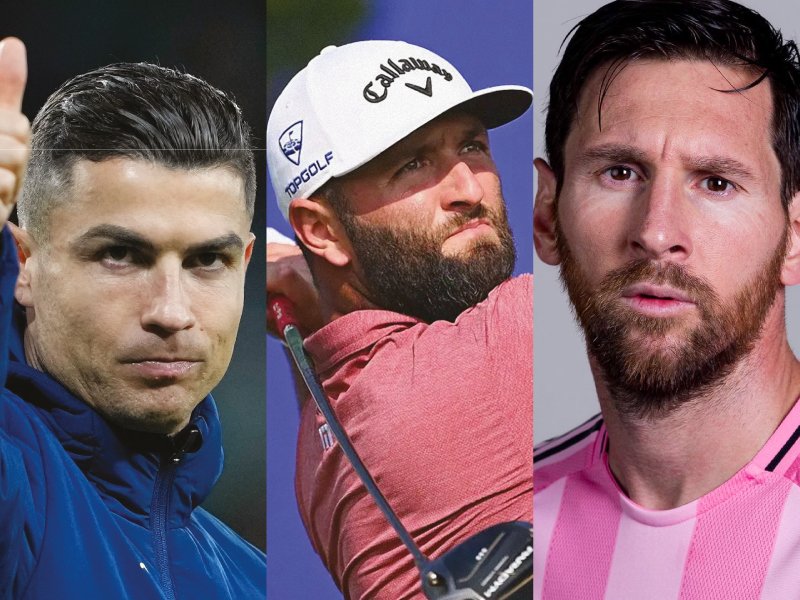In a world where astronomical figures define the sporting Olympus, the titans of 2024 not only amass fortunes, but also redefine the concept of legacy. The Forbes list reveals an ecosystem where talent is valued in the hundreds of millions, but what's truly revolutionary is what these athletes do with their wealth.
Cristiano Ronaldo tops the list with $260 million annually. Beyond his business empire, CR7 funds treatments for children with cancer, regularly donates to hospitals, and, after the devastating earthquake in Turkey, covered medical expenses for countless victims. His silent contributions to humanitarian causes now exceed $30 million.

Jon Rahm, the surprise winner of the year with $218 million, has donated a significant portion of his fortune to the Jon Rahm Foundation, which focuses on combating child social exclusion in Spain. The Basque golfer has transformed his meteoric financial rise into opportunities for those who would never have access to the sport.
Lionel MessiWith €1.4T135 million, he maintains his Leo Messi Foundation as a bulwark against inequality. He has funded the construction of pediatric cancer centers and provided scholarships to more than 2,500 children in vulnerable situations. His vision: "No child should give up on their dreams due to lack of resources."
LeBron James ($128.2 million) transcends the concept of philanthropy with its revolutionary "I Promise School" in Akron, a comprehensive educational model that includes housing, food, and college guarantees for entire families. Its investment of $100 million is rewriting the future of historically marginalized communities.
Michael Jordan, with his net worth of $1.4T3.5 billion, allocated $1.4T100 billion to combat systemic racism following the murder of George Floyd and established free clinics in North Carolina that serve thousands of uninsured people annually.

These titans have understood that their true power lies not in accumulation, but in transformation. While their names dominate headlines for record-breaking contracts, their quiet impact rebuilds hospitals, schools, and entire communities.
Contemporary sport has evolved beyond spectacle and competition. It has become a powerful vehicle for social change, where the most influential figures use their platform to redistribute not only wealth but also opportunities.
In a planet marked by growing inequalities, these athletes demonstrate that true championships are won outside the stadiums. Sport, indeed, gives for the sake of giving. And in that giving, it redefines what it means to be a champion in the 21st century.




